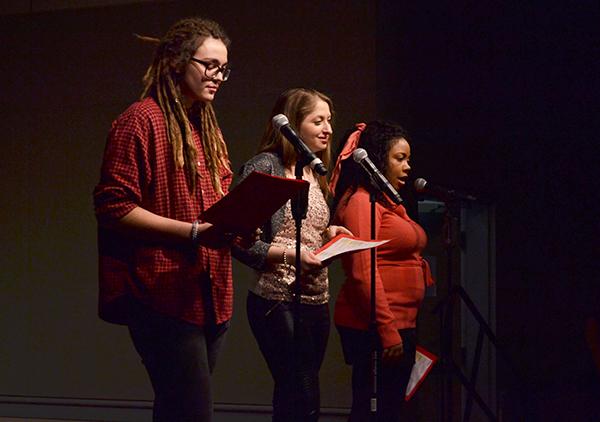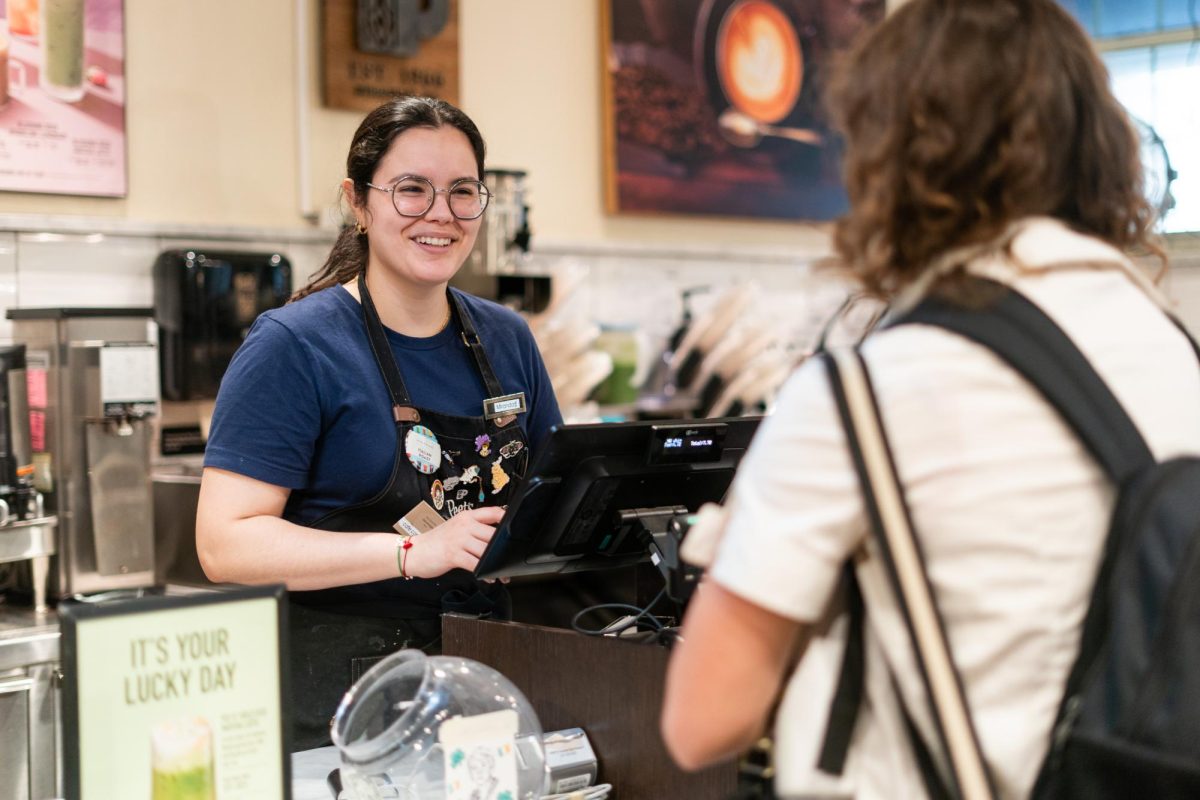Updated: Feb. 23, 2015 at 6:25 p.m.
Over Valentine’s Day weekend, GW’s Feminist Student Union tackled the V-word “nobody wants to say” in 19 short soliloquies that were humorous, uncomfortable and occasionally heartbreaking.
Renditions of “The Vagina Monologues” have been staged thousands of times since its first run in 1996 at HERE Arts Center, an off-Broadway theater, so it’d be easy to assume the script would go stale – but those in charge of the performance say rehearsals still stir up strong emotions.
“At this point, we have heard most of the monologues over a hundred times [but] there are performances that [still] make us tear up or laugh out loud,” directors Erika Feinman, Jay Fondin and Negi Esfandiari, and producer Michela Masson said in an email.
The play has recently faced new criticism. At Mount Holyoke College, a student group cancelled its performance of “Monologues,” citing the exclusion of transgender individuals.
The directors and Masson said that the Mount Holyoke group, Project:Theatre, made a valid point in scrapping its show.
“The script is inherently limited in its ability to represent experiences of women across intersections of identity,” they said. “The initial design of the show to define experiences of womanhood through the possession of a vagina is problematic.”
The organizers said they strive to emphasize female anatomy when advertising and framing the show. Sophomore Ester Grambs, who performed in 2014, said the annual show “helped de-stigmatize the vagina.”
Removing the sting from a word that’s hardly uttered in public is a critical component of the show, “though the distinction between women and people with vaginas may not have been as central during the early years of this production,” the organizers said.
One sophomore who attended the show, Meital Kupfer, said her favorite monologue was “Reclaiming Cunt” because it confronts the awkwardness of saying the word.
“Everyone thinks [vagina] is taboo to say, but we need to say it to make it less offensive,” Kupfer said.
Eve Ensler, the playwright who conducted interviews with more than 200 women and turned their anecdotes into the monologues, wrote the play at a time when violent acts against women, like sexual assault on college campuses, did not often make the news.
The GW directors said they expected the increased media attention on the way colleges handle sexual assault to make their performances all the more relevant.
“The diversity of experiences the show portrays will resonate with anyone who has followed the stories of the long and convoluted judicial processes that victims of sexual assault must go through,” they said.
Each year, V-Day, the organization that promotes “Vagina Monologues” performances around the world, adds a new monologue to highlight a current issue. Many of the monologues advocate female empowerment, as in the lighthearted “Asking the Question,” while others deal with more serious topics like rape, like the monologue “Groceries.”
Nearly 6,000 variations of “The Vagina Monologues” are performed each year across the country in mid-February. The initiative, also called “V-Day,” was founded by Ensler and aims to eliminate violence against women and girls. Proceeds from the GW production went to the D.C. Rape Crisis Center.
When Masson, a junior, joined the production her freshman year, the show raised $900 and was performed in a small room in the Marvin Center. Since then, performances have been held in larger spaces like the Grand Ballroom with three nights of performances instead of two, and fundraising has doubled.
Jeanine Marie contributed reporting.
This post was updated to reflect the following correction:
The Hatchet incorrectly reported Negi Esfandiari’s first name as Negli. We regret this error.






